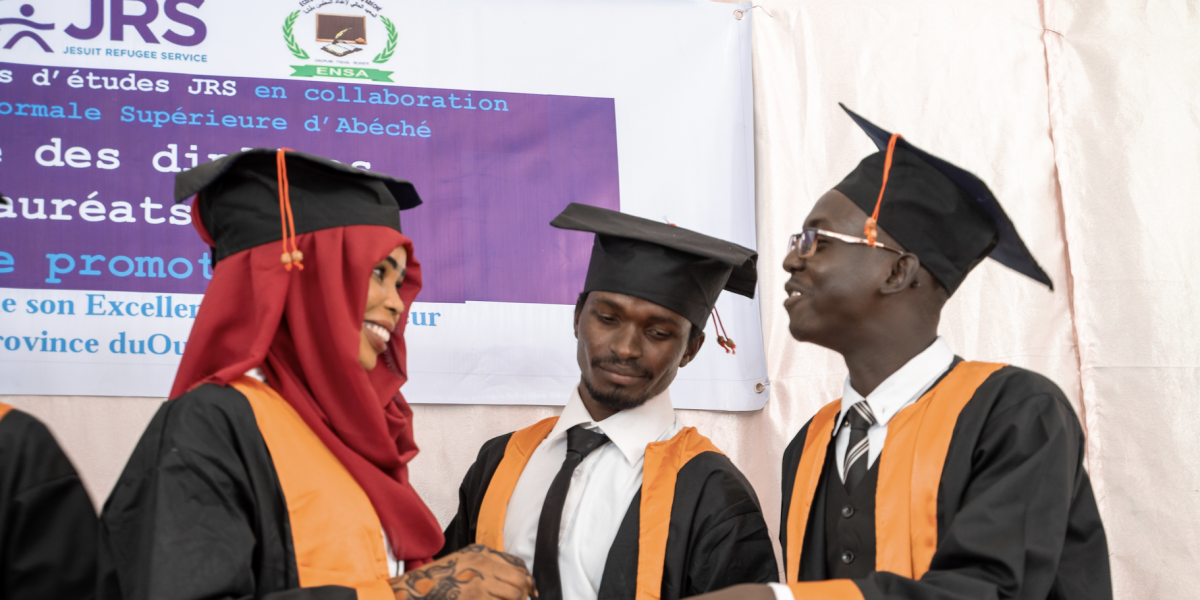In Case You Missed It: Global Action Week for Education
10 May 2022

Global Action Week for Education (GAWE) ran from April 24-30 and focused on preserving education in adverse environments. Here at Jesuit Refugee Service, education is one of our core programs. Over the course of the week, we highlighted eight stories of what refugees – both individuals and communities – have accomplished with the help of our education programs/services.
“It’s my turn to do something for my mother:” We retraced Priscilla’s journey from entering a refugee camp as a toddler to becoming the sole breadwinner for her five siblings and her mother. Her story can be found here.
“My dream of becoming a graphic designer is the only hope that keeps me alive here in the camp. The roots of education here in the camp are bitter, but the fruits are sweet:” John, an aspiring graphic designer, first realized his dream after he enrolled in the first cohort of JRS’s Pathfinder digital literacy program in Kakuma.
“I hope one day I will be a role model in women’s rights, especially refugees:” Like many other Iraqi refugees, Elaf struggled to find opportunities to continue her studies in Jordan. You can follow her journey to becoming a student at a Canadian university with the help of JRS.
“It is a joy for me to be a reference in sewing in my village:” Oumarou, a young tailor, started his own business through JRS’s vocational training program. He now teaches in the same program, assuring that more refugees and host community members can gain a skill that will lead to employment opportunities.
“Being at home was discouraging. I saw other students pursuing university, and I prayed for peace of mind that one day I would have the same opportunity:” Fabiola was born in a refugee camp. Despite years of not being able to pursue post-secondary education due to her status, she was able to work towards a BA in healthcare management through JRS’s Pathfinder program.
We also told the story of two Nigerian women who, thanks to the Farmers Field School training they received from JRS, have been able to not only provide for their families but help bolster their communities as well.
“The women of [my] province have since resorted to secret schooling and study groups to continue their education while the Taliban is in power:” Mina was fortunate enough to have been evacuated from Afghanistan and continue her college education here in the U.S. Not everyone was so lucky, though, as Mina shares their story.
Meanwhile, JRS Europe’s CHANGE program is creating a new, more comprehensive curriculum for students to learn about forced migration and refugees, as well as develop empathy for refugees.
Finally, we highlighted the fact that refugee girls deserve education – but are too often not given the same considerations as their peers. “Her Future: Challenges & Recommendations to Increase Education for Refugee Girls” calls for policymakers, donors, and other decision makers to prioritize education for refugee and displaced girls and provides recommendations to improve access.
The fight to provide refugees with an education is not over. Having the chance to work, earn a living, and be self-reliant is one of the most effective ways for refugees to rebuild their lives. Refugees have their dignity and hope reaffirmed when they acquire the means to earn their own living and support their families.
To learn how we can help refugees secure better access to post-secondary education, check out our policy brief, A Path Forward.


